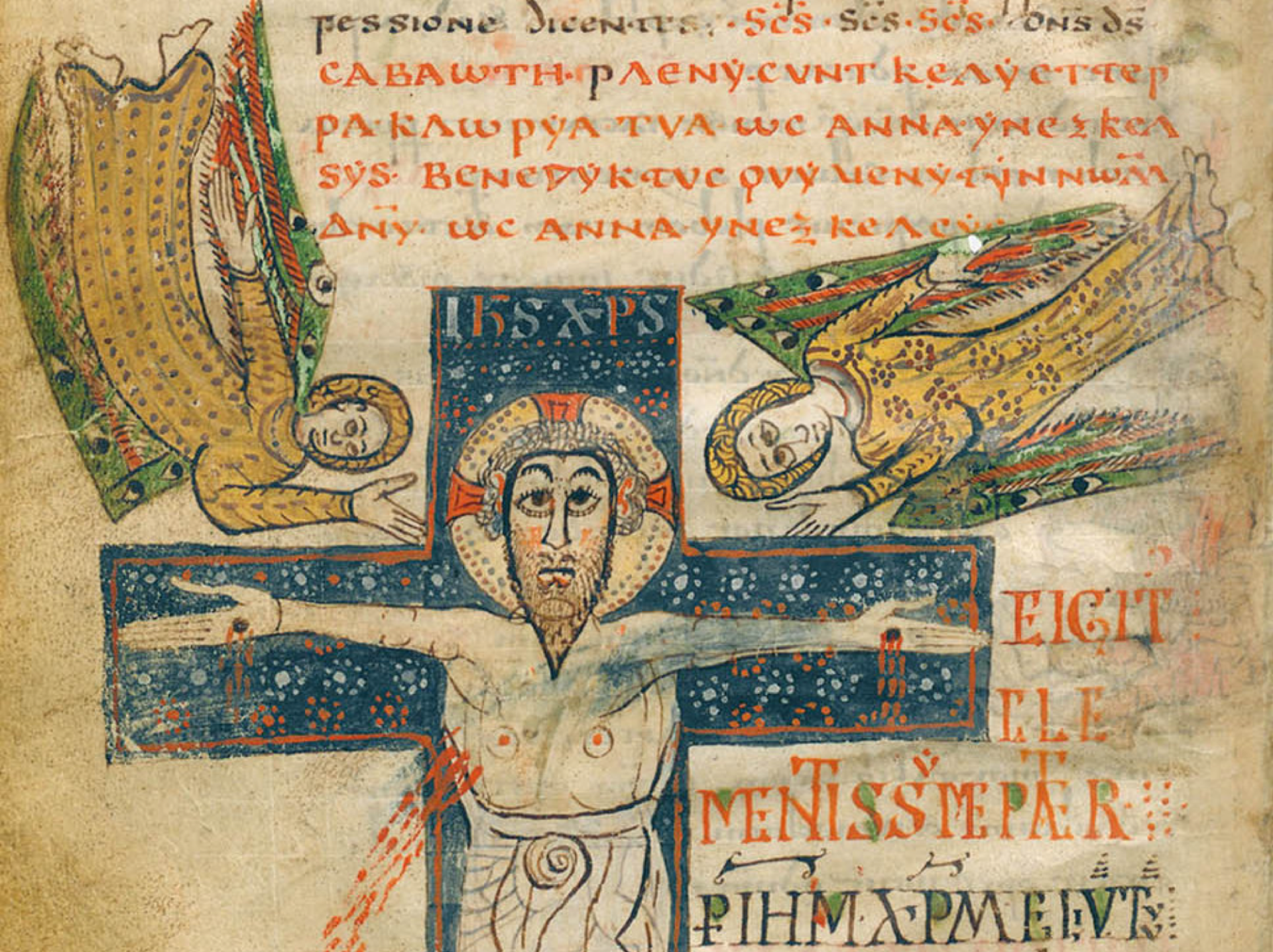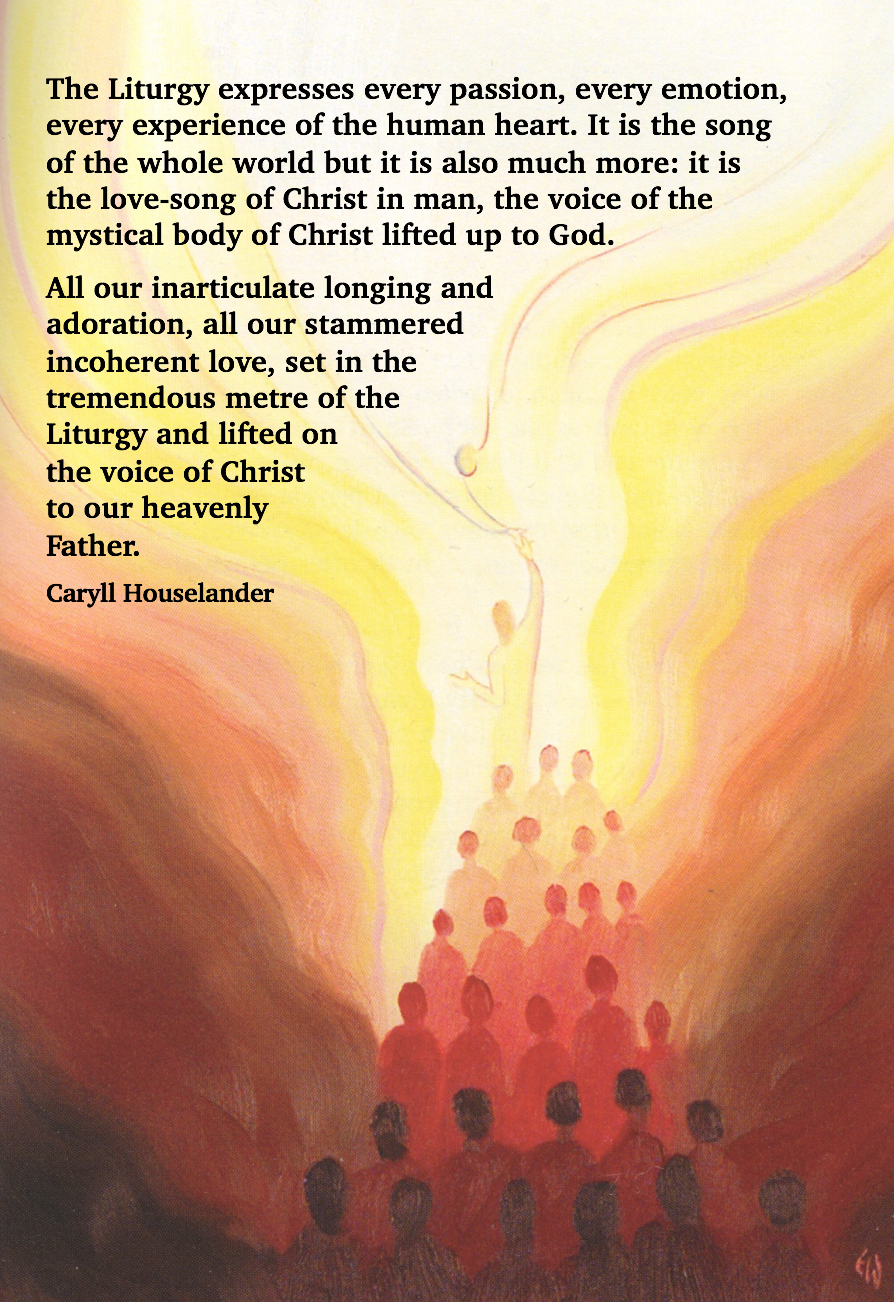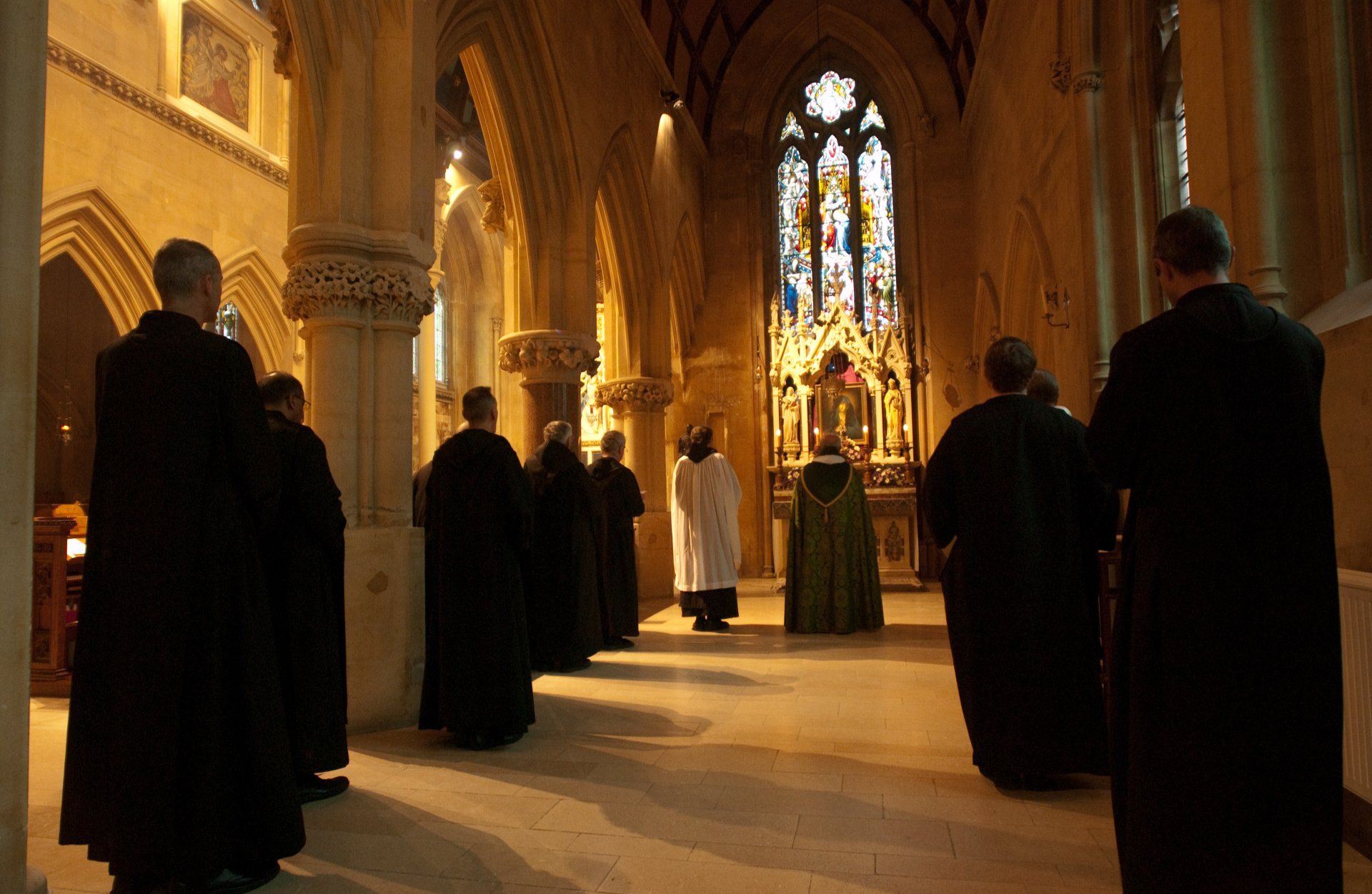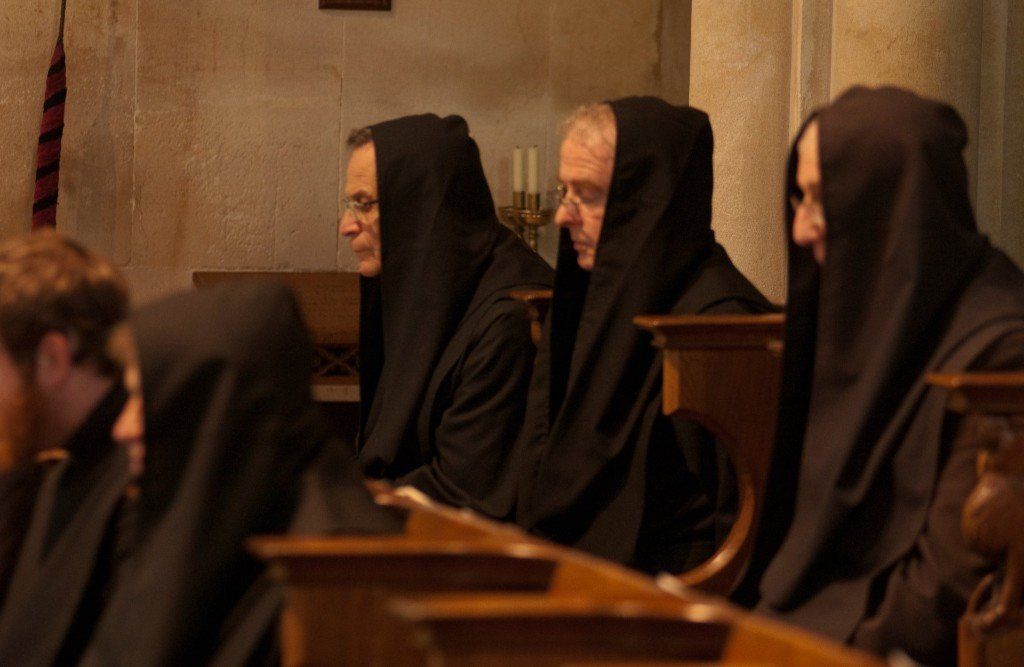The Mass and the Divine Office
The Eucharist - Our Deepest Encounter with Christ
The Eucharist is at the very heart of our daily prayer in fulfilment of Jesus’ command to “Do this in memory of me”
(Luke 22:19).
There, more powerfully that anywhere else, we meet Christ and recognise him in the breaking of bread.
At the altar we meet Christ who comes to us in many different ways. We recall the his actions at the Last Supper when he washed the disciples feet, and saw his death as linked to the Passover of Israel through the Red Sea, from death to life. We recall Christ in his Passion and stand at the foot of the Cross, but we also take breakfast with the risen Lord as on the shore of Galilee. It brings resonances of the meals Jesus took with the "nobodies" of Galilee, meals of reconciliation and forgiveness. The Mass is simple meal and messianic banquet.
"If we really understood the Mass" said St John Vianney, "we would die of joy."

The Greatest Love-Offering Ever
At Mass we do the very thing that the Lord instructed the apostles to do...the very thing that Paul, and the Apostles have handed on to us. We take the bread and the wine in remembrance of that greatest love-offering ever: Christ's offering of his own body for the world.
Pope John Paul says that at Mass every priest hands over his voice to Christ so that the words of the Upper Room, "This is my Body, this is my Blood"
may be heard in every generation. But is not just that these words are heard in every generation, but that every generation becomes his own, a people healed and made holy. As St Peter says: "once we were not a people at all but now we are God's own people."
The Mass is the sacrament of unity, at the heart of our monastic community.
The Liturgy of the Hours
In accordance with ancient tradition the community prays at sunrise (Matins and Lauds) and sunset (Vespers), during the day (Midday Prayer) and at night (Compline). We pray at regular hours in order to sanctify the day and all our human activity, so that we ourselves may become a
"living sacrifice of praise to God."
Each of the “hours” that we celebrate in Church has its own particular character.
Matins or Vigils
is the night-watch hour where we try to be “vigilant” in listening to the word of God and the teaching of the ancient writers and saints of the Church.
Lauds
takes us out of darkness into light as we recall the resurrection of the Christ and “the loving kindness of the heart of our God who visits us like the dawn from on high” as we recall as we sing in the Song of Zechariah. As we welcome the light of a new day we pray that we may be light to others. So we begin the day with lauds, which simply means praise.
At Vespers
we thanks for what has been, and pray that God will accept the offering of our day with whatever it has brought – its joys and disappointments. The psalmist prays that God will receive our offering: “Let my prayer arise before you like incense, the raising of my hands like an evening oblation,” We join with Mary in her hymn of thanks, the Magnificat.
At Compline
we briefly review our day, pray for God’s blessing as we enter the hours of darkness, and ask that he grant us “a quiet night and a perfect end.”



